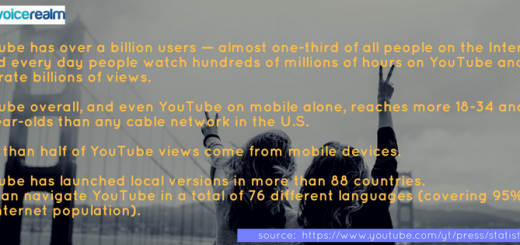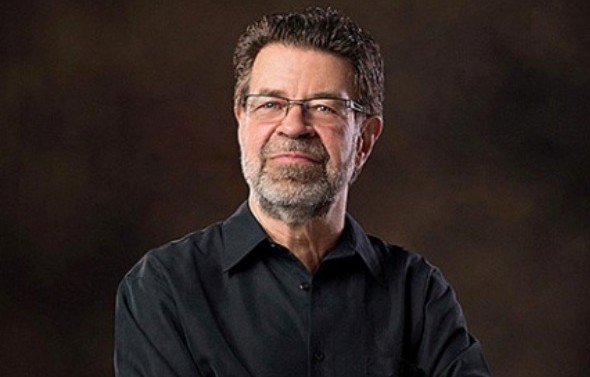Should Voice Talent Be Licensed?
Would you believe that in Argentina you need to be licensed to be a voice actor? In the USA anyone can buy a microphone, set up a home studio and call themselves a ‘professional voice actor’.
Natan Fischer is a Spanish voice actor who books regular jobs through The Voice Realm. We asked him a few questions regarding the industry and his secrets to success.
- How did you break into voice acting?
For most of my childhood I took theater classes. Even at that time I noticed that I had a good command of my voice. It was very easy for me to create characters, imitations and all kinds of caricatures. But during my early teens, almost all of my energy shifted to music. I started taking singing lessons, guitar, bass, going to concerts and even form my own bands.
The study of music somehow replaced my acting studies, but it vocally made me stronger in other respects. Singing in public gives you a kind of unique experience when facing an audience. When I was in school, my classmates and even my teachers asked me to read text aloud, and not necessarily because I had a nice voice, but because I understood the interpretative resources that were needed in order to be listened, entertaining and that the audience pays attention.
When I finished high school, I went to college and 5 years after I got my degree in Advertising. I chose Advertising because I considered it a multidisciplinary field, where many artistic areas coincided and could be combined. But I needed to work too. And that’s when I started to have my first approaches to professional speech and voiceovers.
During my youth I was part of a puppet show, which was presented in schools and other children’s events. It was exhausting, but I worked only with my voice, doing the voices of 5 or 6 characters at once. After finishing my studies I really didn’t want to work in the traditional advertising industry. I preferred to combine my knowledge and try to do more fun things. And that was how I started to produce music for ads, jingles, incidental music and more.
That job put me in direct contact with other voice over artists who lent their voices for the ads I musicalized. From the first minute I knew I could also offer that service. The problem is that I lived in Argentina, a country in which voice over services are extremely regulated. Voice Talents that lend their voices to advertising campaigns need a license issued by the government, like a doctor or an engineer. The only way to get it is returning to college to pursue a degree in Broadcasting, and pass a qualifying examination before the authorities three years later.
I summoned all my force of will and went back to school until I got my license. Once I obtained it, the mixture of academic background that I had, coupled with the experience of many years of music, advertising and acting, I was given the opportunity to offer a complete service to my clients. That’s how I started, and quite a few years have passed. Today voiceover jobs are my main activity.
- Tell us about your home recording studio?
When you record voiceovers in Spanish, you face a particular challenge. It just happens that in the globalized world we live in, a customer in charge of approving a final voice over job in Spanish doesn’t even speak 3 words of the language.
This means that the first parameter to take into consideration is the audio. If they don’t have the ability to assess our articulatory capacity, our acting ability or language proficiency, virtually all their focus will shift in that the audio must be flawless.
In my case, I have a Home Studio and a mobile studio for when I’m on the road. Getting good material of our own studio goes beyond which hardware to buy. We need many hours of training in front of the screen.
But I can tell you about some great products. First, I had excellent experiences with Neumann TLM 103 and TLM 102microphones. Both are excellent, and while the 103 is more expensive and of superior range, I can’t stay with a favorite.
When choosing audio interfaces, I have had many and usually I choose brands like ESI, Infrasonic, Motu and M-Audio. Personally I still look for M-Audio because I’m familiar with it and for quality/price relation, but I’m open to try new things. With the Intense use that a voice over artist gives a sound card, it’s actually rare that it lasts longer than 2 years without starting to show signs of wear.
When choosing a preamp, Avalon is my first choice. It’s expensive, but it is just excellent.
For my mobile studio, I recommend not to get too carried by the desire to reduce weight and volume. I haven’t heard yet a decent professional audio recorded with a tablet. I´ve heard good, but not great. No matter how many attachments and accessories it has. Ideally, buy a good backpack, preferably Samsonite or Mono Case, and carry your laptop, microphone, external audio interface, and preamp.
There is a vacant place in the audio industry for products specifically created for voice over artists and their needs. The Centrance MicPort Pro is a progress. I have one and I use it sometimes if I’m traveling. The quality is very good, but the difference is noticeable when comparing with traditional recording.
- What has your experience been with The Voice Realm?
It has been excellent. The main factor for this to be so is that it’s human. While it has features to automate the processes, people in The Voice Realm are personally involved and know the projects.
The fact that it doesn’t allow voice over artists to compete among themselves for having the lowest rate it’s good for the industry in every way. I personally think that The Voice Realm is not an online casting site, but rather an agency that can adapt perfectly to the time in where we live.
- Would you recommend this casting site to others?
Absolutely. But not everyone meets the necessary requirements to enter. This makes it even more suitable for customers seeking standards of quality, so they don’t waste time listening to too many bad auditions.
- How do you deal with difficult clients?
As anyone involved in dealing with customers, it is common to often encounter some people more difficult than others. Over the years, I learned that with difficult customers you must act is if you got a cold: do something BEFORE it becomes a problem.
One of the worst mistakes that we can make as freelancers, is to assume that our clients are experienced professionals and will act like that only because of the fact that they have the money to pay us. An amateur with money is still an amateur. And I don’t mean amateur in a pejorative way, but simply people that don’t have the necessary experience, but due to a matter of pride or appearances they can’t say it.
That’s where the problems usually come, things that are taken for granted and misunderstandings. The best course of action is to assume otherwise. Assume that the client does not have experience, know little or nothing of the voice over world, and our role is to educate him or her in the process, explaining all aspects of the job before even starting.
When the work in question is in Spanish, the chances of misunderstandings increase. The world of voice overs in Spanish is a separate world that requires learning on the part of customers. That’s what I will be talking about in the 2014 edition of the VOICE convention, from 27 to 30th August in Anaheim, California. My program will be the only one to talk about the Hispanic market in voice overs.
Also, as customers start requesting new jobs again, you begin to establish more fluid and natural relationships. But when the client is new and we don’t know him or her, we must manage the project with the highest level of detail possible.
If there’s any matter that may become a problem in the future, you have to communicate it to the client. It may be a dubious translation, an impossible timing or whatever. This way, the decision is in their hands. If then there’s a conflict based on a problem that we have previously warned the client, the customer then will understand the need to pay for retakes.
And yet sometimes we can’t avoid dealing with irrational customers. One customer, who had hired me for a small job, reappeared after 15 months of absence, saying there was a change in the script and demanded that I had to record again without extra charge because we had “business history”.
In these cases, you simply should respectfully explain the customer how the voice over industry works.
But it is also a mistake to believe that one should always please the customer, no matter what they ask or how they treat us. A client who lies to us, insulting our intelligence, who does not meet payment obligations, which is disrespectful to us or to the members of our staff, can’t remain as our customer.
We must learn to choose who to work with. Because we are persons too.
- What do you think are going to be the biggest changes seen in the voice over industry in the next few years?
I think we are moving through a period that will be marked by two trends. The first has to do with the ways of working.
When large corporations began to fire longtime employees, leaving professionals with over 50 years of experience in the streets to hire new workers who would get paid less, they actually started a snowball that would have consequences.
What they did was lift the boat anchor. They gave the necessary push to a generation that may not have the financial security that these companies granted. With the anchor raised, there are no “safe jobs” and young people know that they will be permanent drifter, and actually prefer to be drifters in charge of their own projects.
Without the assurance of a safe work, we eliminate the stress of not knowing whether we would be able to stay in a job position, thus many young people prefer not to deal with the downside that this sense of security also conveyed.
They prefer not having to deal with ignorant and abusive bosses, wage inequality, obsequiousness, unfair promotions and picnics that would pay to not go.
Being in charge of our own projects generates a lot of uncertainty, but at least we are responsible for our businesses, and economically speaking the sky is the limit.
In short, I think the first big change is a new generation of freelancers that are no longer seduced by an illusion of security. They are willing to create their own businesses and to follow their own rules and schedules.
The second major trend has to do with global marketing and communication. There are plenty of new technologies and new ways in which consumers access information, and it is radically transforming the way in which businesses communicate.
The bombardment of stimuli to which we are subjected every day, makes our attention spans, and the natural filters that our mind puts us to decide what to register and what not much more difficult to penetrate.
Thus, many traditional techniques of persuasive communication are on track to become obsolete and new ones are becoming more important. One is content marketing.
Technological advancement has greatly facilitated the task of creating original content, and now anyone can do it with access to a computer. On the internet everything goes at the speed of light, a viral video becomes old even before finishing. It is the era of idea marketing. People want new ideas; new content and they want it now.
This, added to the previous trend, it is very beneficial cocktail for voice talents and other independent media workers. A generation of freelancers willing to promote themselves developing original content is an exponential growth in our demand. A growing market for freelancers is a market that feeds itself.
This is a good time to be voice over artists, designers and entrepreneurs in general.
- Are you aggressive in marketing yourself, or do you prefer to let your auditions and demos sell themselves?
As I had mentioned earlier, I have 8-year training experience at College, having earned two titles. Marketing, Advertising and Communication Theory are some of my areas of greatest expertise. I dictate seminars at university level and have written an award winnig thesis. I say this only to establish that I don’t like to speak lightly about marketing. There is too much misinformation about the internet, and many myths that actually hurt many unprepared voice over freelancers that seek advice, they do not have the tools to distinguish fact from fiction when it comes to marketing.
And I mean much of the information that is normally found about Social Media, networking, Niches, creating audiences, newsletters, etc..
My next book will contain a fairly extensive development on the area of marketing, specifically aimed at voice over artists, and freelancers in general.
But generally speaking, this is a very good question. Because any solid strategy necessarily requires both parties. The product must be solid; it must be able to speak for itself. And again, an excellent product must be accompanied of a good communication. One without the other rarely ends well.
- Tell us about this book that you are working on.
It is a very extensive work that I’ve been doing for a long time. It emerged as an impulse to provide really useful material. In all areas, from the academic to the blog that provides tips, information is usually supplied with a dropper. They usually provide generic information, tips that are only platitudes and clichés. As if there was a public information domain and a secret information domain, but nobody wants to tell the real useful information. No one teaches you how the real industry works, the real deal. From how the process works to get customers or agents, as to the daily tasks of the job.
The book will be detailed and will develop further the issues that many voiceover artists and freelancers really want to know, with solid tools. Everything that you’ve always wanted to know about the industry of voice overs, but nobody tells you.
When it is ready I will let you know, but in the meantime you can find out more by checking out livingthevoice.com. You can also learn how to get a free copy. And of course, anything you want to tell me or consult me, I am always available through my website www.natanfischer.com















